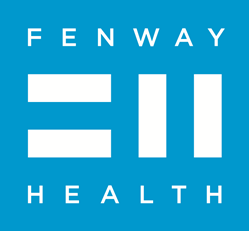
The success of this program in federally qualified health centers suggests that TransECHO could be adapted for other primary care practices across the United States…
BOSTON (PRWEB)
March 27, 2023
A paper published in LGBT Health reports on the outcomes of TransECHO, a professional development and training program for primary care teams on the provision of gender-affirming integrated medical and behavioral health for transgender and gender diverse (TGD) patients. The paper suggests that TransECHO has helped fill gaps in training on TGD primary medical and behavioral health care.
“The health disparities experienced by transgender and gender diverse people are well documented and range from medical morbidities to mental health and substance use disorders,” said senior author Dr. Alex S. Keuroghlian, who directs the National LGBTQIA+ Health Education Center at The Fenway Institute and the Massachusetts General Hospital Psychiatry Gender Identity Program. “To minimize these disparities, medical and behavioral health providers need access to robust continuing professional development on gender-affirming health care.”
TransECHO is based on Project ECHO (Extension for Community Healthcare Outcomes), a tele-education program for health care providers designed to reduce health disparities and increase access to specialty care in underserved areas. Participants in TransECHO met once a month for two hours over 12 months. Sessions consisted of brief lecture presentations and case-based learning. Between 2016 and 2020, seven cohorts of primary care teams from 129 federally qualified health centers participated in year-long training cycles. The health centers served people living in urban (65.6%), rural (21.9%), and suburban (12.6%) areas in 35 states, Washington, DC, and Puerto Rico. Of the 464 participants, approximately 59 percent were primary care providers such as physicians, nurse practitioners, and physician assistants; 31 percent were behavioral health providers such as clinical psychologists and licensed social workers; and 10 percent held a variety of other health care positions such as front desk supervisor, program manager, HIV counselor, or workforce development trainer.
Participants were asked to rate whether TransECHO enhanced their knowledge of TGD care; whether information from TransECHO could be applied to their practice; whether they expected to use what they had learned; and if they intended to change their practice based on what they learned. They were also asked to evaluate TransECHO materials and teaching methods. All of the questions rated scores of at least 4.11 on a five-point scale, with knowledge enhancement (4.48) and effectiveness of teaching materials and methods (4.47) receiving the highest scores followed by expectation to put new information to use (4.41) and intention to change their practice (4.11).
“Overall, participants in TransECHO reported that they had increased their knowledge about how to provide gender-affirming health care and that they felt more confident in doing so,” said lead study author Jack Bruno, TransECHO Program Lead. “The success of this program in federally qualified health centers suggests that TransECHO could be adapted for other primary care practices across the United States, which would improve the primary health care experiences of many more transgender and gender diverse people.”
“Given the persistent inequities in health outcomes experienced by transgender and gender diverse patients, access to high-quality professional development and training in gender-affirming health care is a necessity for medical and behavioral health providers,” said study author Hilary Goldhammer, SM.
“TransECHO: A National Tele-Education Program for Expanding Transgender and Gender Diverse Health Care,” was published online on March 7, 2023.
Share article on social media or email:

